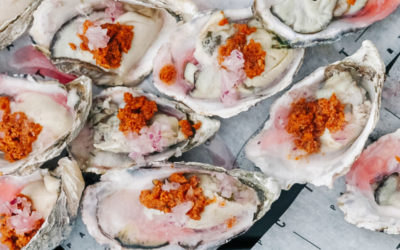
Pedestrians pass a Chipotle Mexican restaurant in Arlington, Virginia February 4, 2011. REUTERS/Kevin Lamarque
(Reuters) – Chipotle Mexican Grill Inc on Monday said the 46 ingredients used in its roughly 1,800 restaurants were now free of genetically modified organisms, becoming the first major U.S. restaurant chain to make that switch.
U.S. diners, particularly those in the sought-after young millennial generation, are seeking fresh foods that are less processed and more natural or organic. Part of that trend includes GMO-free foods.
GMO advocates have warned that producing foods that are not genetically engineered would increase costs. Chipotle, however, said its move did not result in significantly higher ingredient costs, and it did not raise prices as a result of going GMO-free.
Some of the most popular U.S. GMO crops are corn, soybeans and canola, which are staple ingredients in virtually every type of prepared and packaged food, from soup and tofu to breakfast cereals and chips.
Scientists have spliced the DNA of those GMO crops with that from different species. The aim, among other things, is to make them resistant to pests or more tolerant to drought.
Organic foods do not contain GMOs.
While proponents and critics disagree over the safety, environmental impacts and effectiveness of genetically engineered crops, a consumer backlash against them already has led General Mills Inc to remove GMOs from its original Cheerios.
“Though many countries have already restricted or banned the use of GMO crops, it’s clear that a lot of research is still needed before we can truly understand all of the implications of widespread GMO cultivation and consumption,” Chipotle founder and co-Chief Executive Officer Steve Ells said in a statement.
“While that debate continues, we decided to move to non-GMO ingredients.”
The company said its small ShopHouse Southeast Asian Kitchen chain also became GMO-free.
Shares of Chipotle, which is also removing tortilla additives such as preservatives and dough conditioners, were up 0.6 percent to $641.11.




